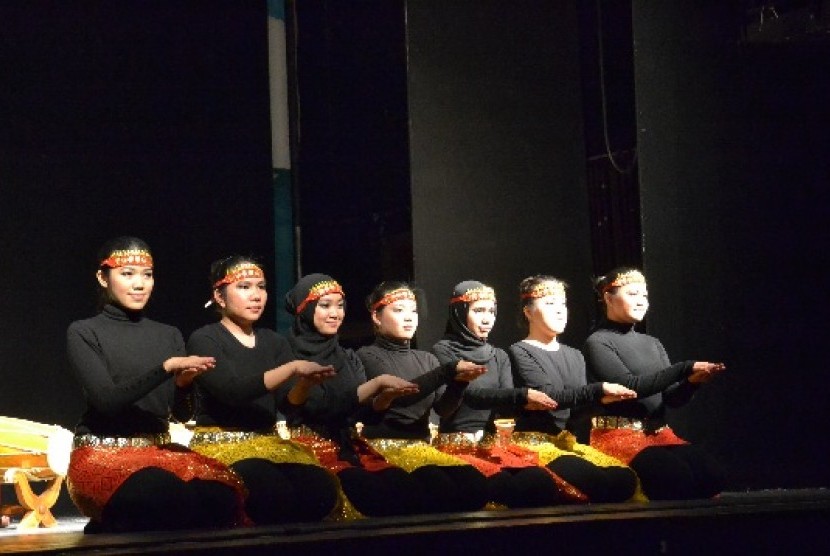Tari saman
Saman Dance is one of Indonesia's cultural richness derived from Gayo Aceh land. Recently, the Indonesian Record Museum (MURI) awarded the dance with the largest number of dancers, 12,262 people dancing Saman Dance.
This is the second Saman Dance performance, having previously in the year 2011 MURI record was first solved with the number of most dancers, that is, 5,054 dancers.
This proud dance must have interesting facts behind it. Here are three interesting facts about Saman dance that is not known by many people:
- Often equated with Dato Ratoeh Datuk
For some people, Saman dance is often mistaken for Ratoeh Datuk dance. In fact, they are very different. The difference is in the dancers. Saman dance performed by male dancers with an odd number, while dance Ratoeh Datuk performed by female dancers with an even number.
Another difference is in terms of clothing. Saman Dance wear patterned pockets, while Ratoeh Datuk dance wearing plain clothes combined with aceh songket.
If listened more closely, Saman dance recites poetry in the Gayo language while Ratoeh Datuk dance in the language of Aceh.
- Aceh belongs to the world
The governor of Aceh, Irwandi Yusuf, said that Aceh's Saman dance is for the world. Belia also said that if the Saman dance belongs to the world created by Gayo Lues, not the people of Aceh as a whole.
At that time, the Saman dance performance was being viewed with a glance by Gaura Mancacarita, an Australian citizen who was a research team of Saman dance and became an important figure who incorporated Saman dance into a UNESCO book..jpg)
- UNESCO recognized as a World Heritage
There are four things that must be had if a culture wants to be recognized by UNESCO, namely, originality, uniqueness, universal philosophical value, and the power of the people to the people.
One of the Indonesian culture that has all four things is Saman dance. Another Indonesian culture that has been recognized by UNESCO among others is, puppets, keris, batik, and angklung art.
Preserving and preserving the culture of the nation is not the task of the government alone but the whole layers of citizens in Indonesia. Many simple things we can do to keep our cultural treasures, such as pride and possession, learning and understanding of history, and other positive treatment